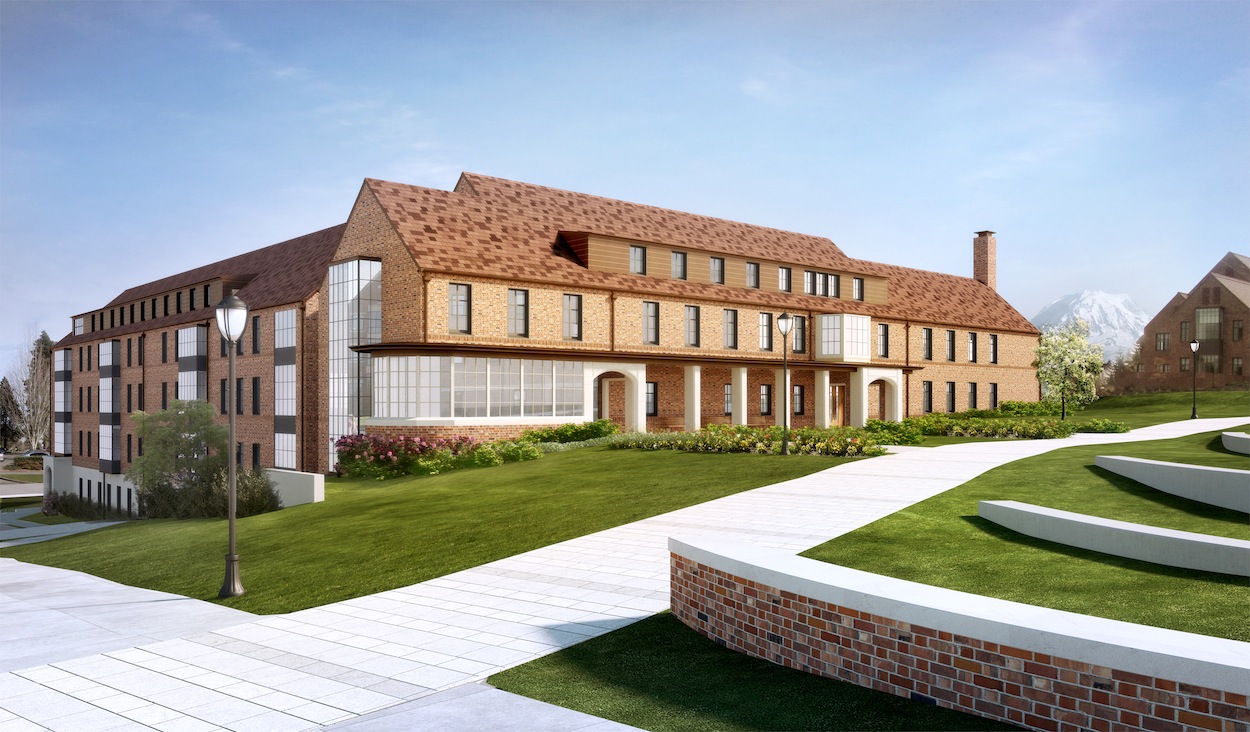
With only six months left to go, construction of the New Residence Hall is well under way and will accommodate students by August of this year. The hall will be hosting a variety of academic groups, including the Honors Program, Puget Sound Outdoors, and the Humanities Program.
According to the official website, the new hall will house 135 students in single rooms and will have a meeting room capable of holding up to 150 people. The need for such a space may be attributed to a growth in the areas of study the Hall is designed to accommodate.
Most prevalent is the Humanities Program that now offers a minor in Intellectual History and the arts. Behind this push is Professor George Erving, a prominent figure in shaping the program. Erving was recently designated to be a leader for the humanities.
“Professor Erving has been able to provide leadership and energy because of that appointment,” Professor Geoff Proehl said. Proehl is a Humanities Program committee member and teaches one of the freshman seminars for the Humanities.
A factor for the growth and popularity of the Humanities Program is the wide range of studies that it encompasses for students—regardless of their major—with interests in Religious Studies, English, Philosophy, History and more. The students living together in the new hall will represent multiple disciplines but share an interest in the arts. Another section of the new hall likewise offers rooms for upperclassmen with disparate majors but who share a common core curricular experience.
“We like having first-year students in contact with sophomores, juniors and seniors,” Professor Kent Hooper, the Director of the Humanities Teaching Collective, said.
“Up until now, living, learning, connected with freshman seminars have been just freshman,” Hooper continued. He hypothesized that Puget Sound might view the growth of the programs as an example of the possibilities that any department could take.
As it stands, the freshmen who compose the Honors Program are not only separated from their peers in their residences, but are also scattered around campus. If all the students in the Honors Program were to live together, then, as Hooper and the department have suggested, the younger students would be able to study and get encouragement from those who have been through the program on various levels.
There is a purpose for having students of different academic backgrounds residing together. Part of the Puget Sound education involves interdisciplinary learning in addition to a focused major: “[the various] core areas develop the student’s understanding of different disciplinary perspectives on society, culture, and the physical world,” as the Core Curriculum website states.
The Humanities Program addresses this view by means of its encompassing nature, taking in students from several academic areas, while the Honors Program is focused around a common core curriculum for its participants. Both departments, when living close together, can provide each other with more diverse ideas and approaches to learning than they can apart.
The combination of these programs, in addition to the other academic areas living in the new residence hall, offers a melting pot for the widest range of interests that can be combined at Puget Sound.
With the University growing every year, advancements in living facilities and in intellectual diversity provide new students with options for making an increased number of social and interdisciplinary connections.
